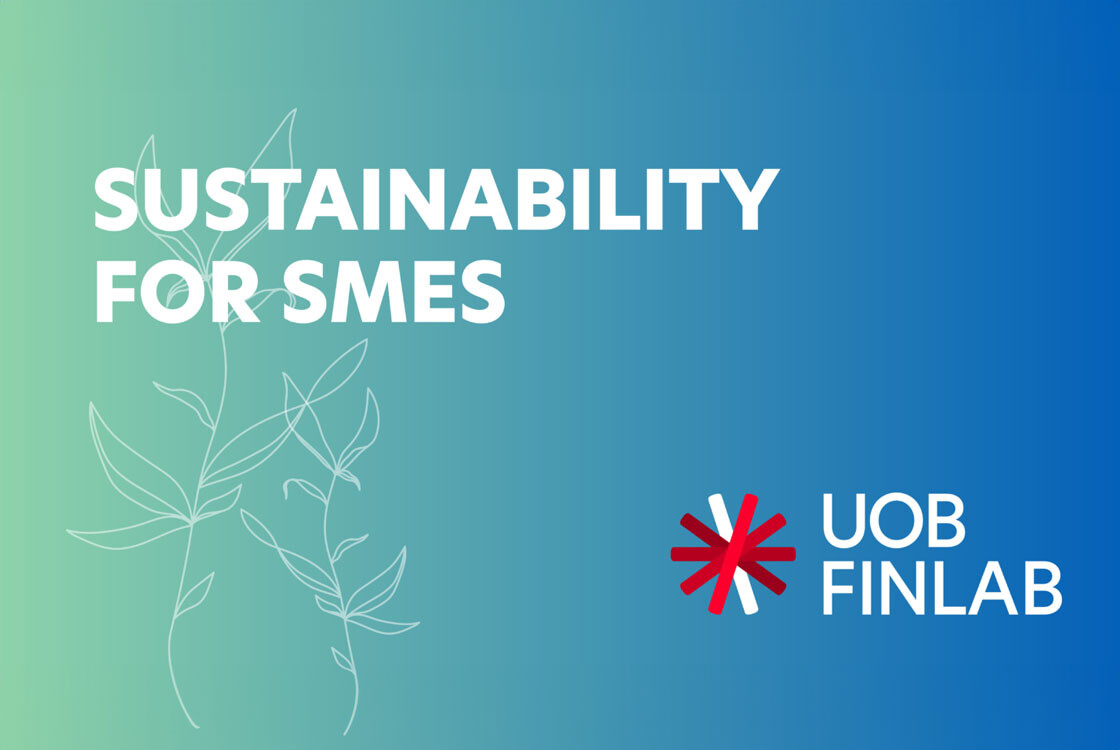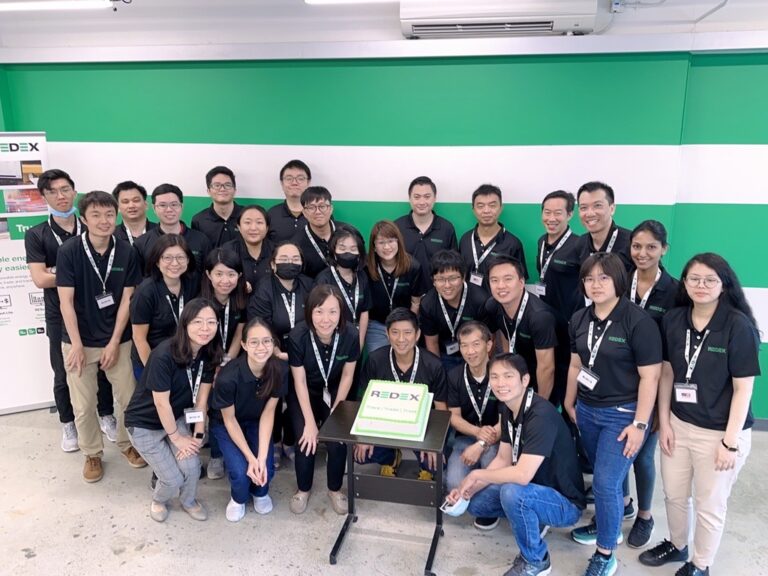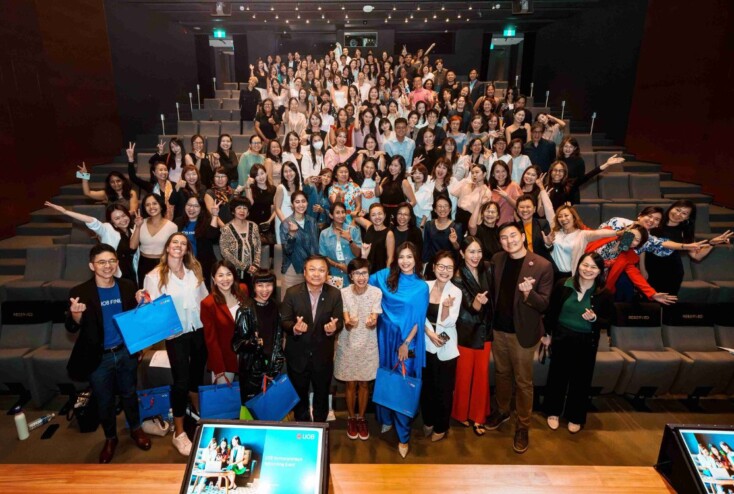
Upskilling: A Key Strategy to Futureproof SMEs in a Digital and Sustainable Economy
Upskilling is the key for SMEs to thrive in a digital and sustainable economy—and UOB FinLab is here to make it happen.

Today is the first iteration of UOB FinLab’s Sustainability Series – a series of articles that address a different area of sustainability and its impact in Singapore and the region. Our first piece will deep dive into the world of Renewable Energy Certificates (RECs).
Singapore, although a small nation, has been actively promoting sustainability and renewable energy initiatives as it recognises the threat of climate change. Without access to low-carbon energy sources and bio-based resources, the country looks to innovative initiatives to encourage the adoption of renewable energy sources, reduce the country’s carbon footprint and drive Southeast Asia’s green growth opportunities. One solution that Singaporean companies leverage to demonstrate the use of clean, renewable energy are RECs.
There is a rise in the use of RECs by businesses as they slowly understand the importance of using green energy as a means of meeting their sustainability commitments and reducing their carbon footprint.
So what are RECs? RECs are simply a tradable instrument that represents the legal property rights to the renewable energy generated. Through the purchase of RECs, users can make claims that the energy they use comes from a renewable source.
Companies typically purchase RECs because they are unable to generate their own clean energy for their use. RECs enable businesses to pay for the clean energy injected into the same electrical grid from other renewable energy sources within the country for their own use – like energy generated from solar panels.
Government agencies in Singapore see the potential of RECs as a means for businesses to fulfil their sustainability commitments and introduced a Singapore Standard “SS 673: Code of Practice for Renewable Energy Certificates”. This standard provides a clear framework to improve the integrity of measurement, reporting and verification requirements for the issuance and management of RECs – further boosting the legitimacy and consistency of RECs.
To give you an example, the Singapore Grand Prix utilised RECs to offset remaining unavoidable emissions. In 2022, it purchased RECs to cover 85% of its electricity consumption in the Circuit Park – ensuring that its energy came from renewable energy sources.
The development of RECs in Singapore also encourages investment in renewable energy projects. Solar energy is particularly key as the sunny nation has immense potential to leverage solar energy as a renewable energy source.
One company that has been at the forefront of RECs innovation is REDEX, a participant from UOB FinLab’s GreenTech Accelerator programme.

REDEX is a REC solutions provider. It offers a full suite of services to manage the end-to-end process. It supports client origination, the process of helping renewable energy asset owners go through registration, issuance of RECs, buy and sell RECs, as well as retire RECs to achieve their energy sustainability goals.
RECs need to be verifiable, available and not double-counted by another entity. REDEX uses the traceability benefits of blockchain technology to track and certify transfer of ownership and retirement of RECs to prevent double-counting of ownership.
UOB FinLab’s GreenTech Accelerator programme enabled REDEX to leverage UOB FinLab’s vast ecosystem of government agencies, SMEs and key industry stakeholders across ASEAN. This allowed REDEX to gain access to knowledge, best practices, resources and new business prospects within the ecosystem.
Alex Loh, Business Development Director, REDEX said: “We received immense potential from the GreenTech Accelerator programme. We managed to meet industry leaders, bounce ideas off other players in the space and secured new clients. Being in front of such a curated network opened REDEX up to many business touchpoints where we could collaborate and work with new partners. At the same time, we were able to contribute back to the space by sharing our key insights with other industry players and our approach to long term sustainability.”
RECs are an important aspect in the grand scheme of creating a sustainable world. Alex believes that it is crucial for all organisations to look at sustainability as a long-term commitment as it will enable firms to stay competitive and responsible. According to the UOB Business Outlook Study 2024 Report, more than seven in 10 businesses in Singapore believe that sustainability is important. However, less than four in 10 have implemented sustainable practices.
There are two main hurdles limiting SMEs from progressing with their sustainability initiatives. The first is the financial and manpower constraints to implement sustainability programs. Alex Loh added: “While there is an upfront cost and time investment, the long term benefits are huge. All the large industry players are seeing the value of protecting the planet for future generations to come and often prefer to work with suppliers, often SMEs, who have the same ethos. If a SME does not understand sustainability or refuses to implement, it may not become business competitive and lose out on deals with bigger players.”
The second factor that hinders the advancement of a SMEs’ sustainability journey is the lack of education and understanding. “SMEs across the region tackle sustainability with a ‘wait-and-see’ approach. There needs to be more awareness and education on why action needs to be taken now,” said Alex Loh.
Another player that feels the same way is Chris Ang, Director of Sin Gee Huat Recycling. He said: “Companies do not fully understand how to adopt sustainability practices and are unsure what frameworks to use. The entire industry, public and private, plays a huge role in propelling the mass adoption of sustainability practices. We need to collaboratively come together and support each other through knowledge sharing, resources and even workshops such as the Sustainability Innovation Programme or the GreenTech Accelerator programme organised by UOB FinLab.”
Sustainability should be viewed as a journey for all. It’s a never-ending journey that requires everyone to constantly adapt to the planet’s ever-evolving conditions. Individuals, businesses of all sizes, government and industry solutions providers, be it RECs, solar power, water conservation or electric vehicles, are all pieces of a puzzle that needs to join forces to tackle a challenge that precedes everyone – the preservation of our planet for the future.
UOB FinLab offers two sustainability programmes:
To find out more about UOB FinLab’s programmes, click here.


Upskilling is the key for SMEs to thrive in a digital and sustainable economy—and UOB FinLab is here to make it happen.

Continuing from last year, #UOBxWomenpreneurs series returns in 2025, organised by Business Banking Singapore (BBS), UOB FinLab, and Group Wholesale and Markets Marketing (GWMM) to engage and empower women entrepreneurs in Singapore. The initiative creates a strong platform for women-led businesses to access practical resources, mentorship, and a supportive network as they grow and lead with confidence.

Uncover how Singapore’s AI Strategy aand UOB FinLab’s hands-on support are turning ambition into action for SMEs.

Designed for business owners to enhance their digital capabilities through practical learning, this programme takes businesses to the next level.
Designed for business owners to enhance their digital capabilities through practical learning, this programme takes businesses to the next level.


Bridge ideas and innovation, subscribe to the FinLab Connect now!